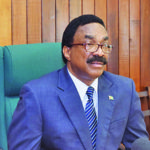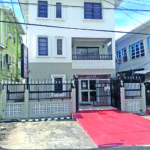Some four years after the Law Reform Commission Act was passed in the National Assembly, the entity is yet to be fully established and according to former Attorney General Anil Nandlall, millions of dollars continue to be wasted to pay staff and rental for a building.

Nandlall pointed out that since 2016, approximately $113.3 million have been allocated to fund this Commission and as of January 2020, not a single Commissioner was appointed to this Commission.
“To date… it remains a white elephant. It has done not a single work,” he contended in a statement on his Facebook page on Friday.
The Law Reform Commission Act, which was piloted by Legal Affairs Minister Basil Williams, was enacted in January 2016. The Law Reform Commission (LRC) is a statutory body which shall consist of three to seven members including a Chairperson, who is appointed by the President, following consultation with the Minister of Legal Affairs.

According to the law, the Commission is mandated to review, simplify, modify and systematically develop the law.
Nandlall reminded that during the 2018 National Budget Debate, based on a question he asked, AG Williams disclosed that the Commission is staffed with 10 persons. These persons, according to the former AG, are being paid the salaries for doing nothing.
He said the Legal Officer gets $700,000; two Office Assistants earn $100,000 each; two Legal Clerks get $150,000 each; three Typists earn $130,000 each; a Driver $120,0000 and a Cleaner $75,000.
This amounts to a total of $1,785,000 in salaries per month.
He went on to explain that if these persons were hired by 2016, then based on those figures, the total salaries that would have been paid from June 2016 to December 2019 (43 months) would amount to $76,755,000.

